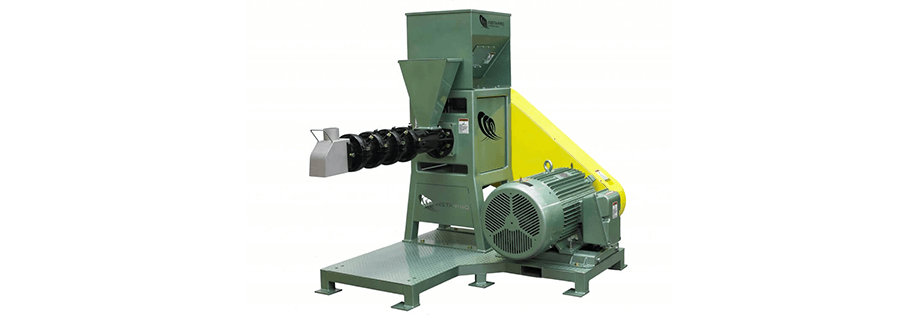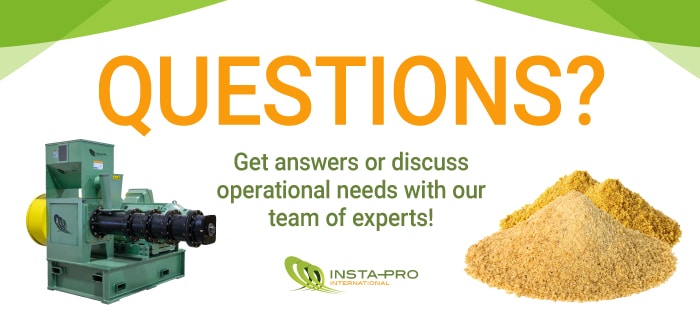Food Grade vs. Sanitary Design

Our extruders may be best known for processing feed ingredients, but several customers are producing products for human consumption. These products can include things like fortified blended foods (FBFs) and textured soy proteins (TSP), among others. Food processing facilities will have more scrutiny regarding cleanliness and hygiene compared to feed plants and careful consideration must be made to product handling. One area we see a lot of question about is in regards to equipment construction and how it relates to food grade items.
Terminology
Like many things, “food grade” tends to have different meanings depending on which part of the world you live. What might be okay in one location may not be acceptable in another. There can be much confusion about what this term actually means and how it relates to equipment construction. This is an important distinction to remember when requesting “food grade” equipment. Typically, a more correct term is to have a “sanitary” design.
Design Characteristics
Sanitary designs generally have to do with how easy the equipment is to clean and how well it keeps product from piling up in gaps and holes. In general, the designs have the following characteristics:
- Generally constructed from stainless steel (other materials can be used, however)
- All surfaces that come into contact with the product are easily accessible for cleaning and inspection
- Joints are welded instead of bolted and are ground and continuous (no gaps or holes where product can be stuck or hidden from cleaning)
- Parts are easily disassembled without tools for easy cleaning and inspection
Standards
Domestically and internationally, there are various committees and organizations that offer standards for food grade construction and practices. These are designed to be best manufacturing practices. These groups work in collaboration with one another to develop these, even though they may come from various industries such as meat and dairy. Adhering to these can allow you to differentiate your product as something superior in the marketplace. Below are various standards for reference:
- 3A Sanitary Standards Inc. (3A SSI): http://www.3-a.org/
- European Hygienic Design Group (EHEDG): http://www.ehedg.org/
- National Sanitation Foundation (NSF): http://www.nsf.org/
Equipment Quotations
The term “food grade construction” must be clarified with a vendor when quoting equipment. Depending on the standards you choose to adhere to, the price of the equipment can vary significantly. The term “stainless steel commercial” generally means that a piece of equipment has stainless steel in place of normal carbon steel components and nothing more. This will likely not adhere to a sanitary design standard. Be aware of this and what your needs truly are. A piece of equipment constructed from stainless steel may generally be about 25% more expensive than one of carbon steel, but a sanitary design may be more then double the cost of a stainless product. This is mostly due to the extra labor involved.
It is important to really understand your needs before simply requesting a “food grade” quote. For additional information on our products, contact a member of our team.



